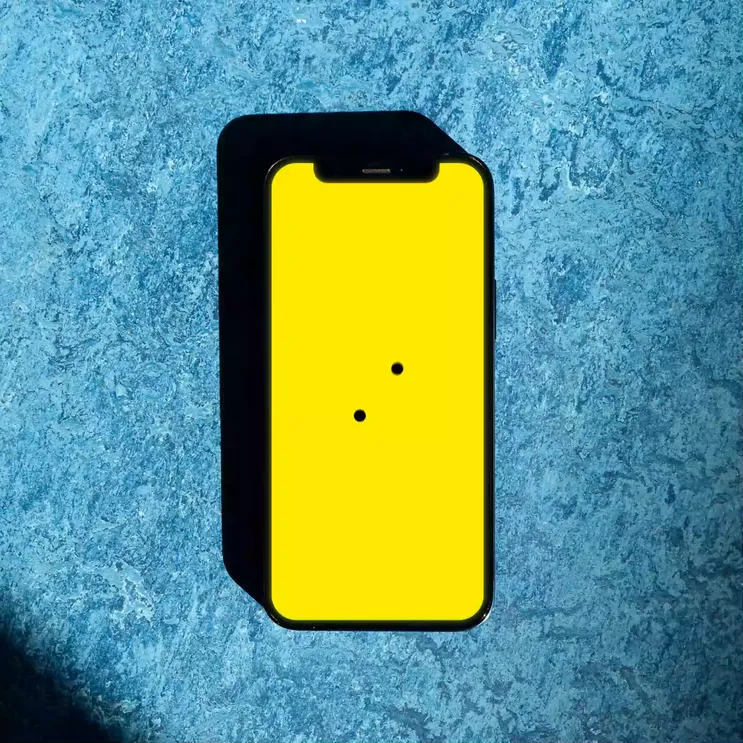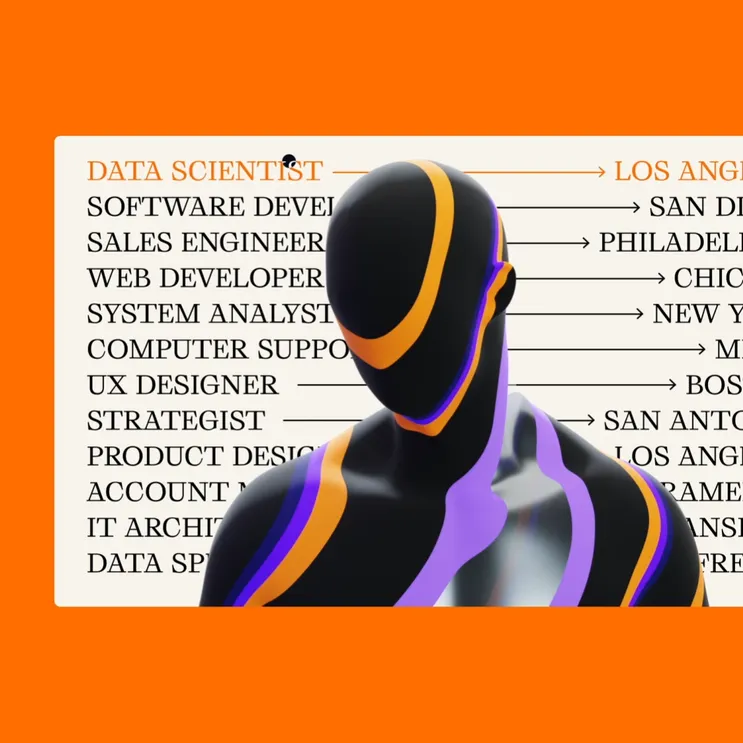Branding
16 min read
How to Choose a Branding Agency: 16 Questions That Actually Matter
Choosing a branding agency shouldn't feel like speed dating in the dark. Yet here you are, scrolling through portfolios that all look suspiciously similar, reading "we create brands that resonate" for the hundredth time, and wondering if anyone actually knows what they're doing.
The truth? Most businesses choose agencies based on gut feeling, a nice-looking website, or whoever slides into their inbox first. Then they're surprised when they end up with a logo they quite like but a brand that doesn't actually work.
Here's what nobody tells you: the difference between a good branding agency and a mediocre one isn't visible in their portfolio. It's in their process. It's in the questions they ask before they show you anything pretty. It's in whether they can articulate why not just what.
These 16 questions will help you figure out who's actually going to build you an unignorable brand, and who's just going to make you look slightly better than you did before.
Strategy & Process: Where the Real Work Happens
1. What's your brand strategy process before any design begins?
This is the nuclear question. If they launch straight into mood boards and colour palettes, run.
What you're listening for: A clear process that includes research, positioning, messaging frameworks, and strategic foundations. They should talk about understanding your business goals, your audience, and your competitive landscape before anyone opens Illustrator.
Red flag: "We start by understanding your vision and creating some concepts for you to react to." Translation: "We're going to guess and hope you like something."
2. How do you approach brand research and discovery?
Good agencies are annoyingly curious. They want to understand your business better than you do (which is irritating but valuable).
What you're listening for: Stakeholder interviews, competitive audits, customer research, market positioning analysis. Actual methodology, not just "we'll have a kickoff meeting."
Red flag: "We don't really need much from you - we're pretty intuitive." Cool. So is my dog. Doesn't mean I'd let him run my rebrand.
3. Can you walk me through a typical project timeline?
Anyone can promise you the moon. But can they tell you exactly how long it takes to get there, and what happens at each stage?
What you're listening for: Realistic timelines (spoiler: proper branding takes months, not weeks), clear phases with decision points, and honesty about where delays typically happen.
Red flag: "We can turn this around in 3-4 weeks." Unless you're reheating leftovers, quality branding cannot be microwaved.
4. How do you handle disagreements between strategy and personal preference?
Because let's be honest: you will love something strategically questionable at some point. Or hate something that actually works.
What you're listening for: A clear point of view. They should be able to defend their recommendations with logic, not just defer to whatever you prefer. You're hiring expertise, not a yes-person with Photoshop.
Red flag: "The client is always right - whatever you want!" No. Sometimes the client is wrong. A good agency will tell you.
5. What happens if we realize the strategic direction isn't working?
Things change. Markets shift. New competitors emerge. Good agencies adapt.
What you're listening for: Flexibility within reason, clear change management processes, and honesty about what's included vs. what's a scope change.
Red flag: "Everything is locked in once we start phase two." Rigid thinking leads to irrelevant brands.
Experience & Expertise: Portfolio vs. Process
6. What experience do you have in our industry (and does it matter)?
Here's the controversial bit: industry experience can be overrated. Sometimes fresh eyes see opportunities insiders miss.
What you're listening for: Either deep sector expertise (valuable for regulated industries like finance or healthcare) OR a track record of bringing outside thinking to transform categories. Both work. Neither is inherently better.
Red flag: "We've done exactly what you need dozens of times." Cookie-cutter thinking produces forgettable brands.
7. Can I see case studies that show results, not just pretty pictures?
Portfolios are seductive. But did those pretty brands actually work? Did they drive business results? Or just win design awards?
What you're listening for: Metrics. Business outcomes. Evidence of strategic thinking. How did the brand perform in market? What problem did it solve?
Red flag: They only want to show you the visuals. No strategy documentation. No results. Just vibes.
8. Who will actually be working on my project?
You met the charismatic founder in the pitch. Brilliant. But will they be designing your brand, or is that getting delegated to someone you've never met?
What you're listening for: Clear team structure. Who does what. How senior people stay involved throughout. Access to decision-makers when you need them.
Red flag: "We have a great team of designers who'll take care of you." That's not an answer. Names, please.
Practical & Business: The Unglamorous But Critical Stuff
9. What's included in your pricing, and what costs extra?
Branding projects have a nasty habit of inflating in scope. Suddenly you're paying extra for things you thought were included.
What you're listening for: Transparent, detailed proposals. Clear deliverables list. Explicit call-outs of what's out of scope. No surprises.
Red flag: Vague pricing. "It depends..." on 47 different factors they haven't explained. Or suspiciously low quotes that mysteriously escalate.
10. How do you handle revisions and refinements?
Because "can you make the logo bigger" is only the beginning of the revision requests parade.
What you're listening for: Clear revision rounds included in each phase. Structured feedback processes. What happens if you need more rounds (and what that costs).
Red flag: "Unlimited revisions!" Sounds great until you realize it incentivizes sloppy first drafts and endless cycles.
11. What deliverables do I actually receive at the end?
You need more than just files. You need documentation, guidelines, and the strategic foundations that make the brand work.
What you're listening for: Logo files in all formats, brand guidelines, messaging frameworks, strategic documentation, templates if relevant. Basically, everything you need to actually use your brand.
Red flag: "We'll send you the logo files." That's not a brand system. That's a fancy image.
12. How do you ensure the brand works across all touchpoints?
Your brand needs to work on everything from LinkedIn headers to exhibition stands. In print and digital. At massive and tiny sizes.
What you're listening for: Systematic thinking about brand architecture. Flexibility built into the system. Testing across applications. Not just making things look good on their portfolio page.
Red flag: They designed the entire brand at billboard scale and it falls apart on a business card.
13. Can you actually activate this brand, or just document it?
Here's an uncomfortable truth about branding in 2025: if your agency can't bring your identity to life across real touchpoints, you're essentially paying for an expensive PDF that sits on someone's hard drive.
What you're listening for: Capabilities beyond strategy and identity design. Can they design and build your website? Create your pitch deck? Design your product interface? Handle your packaging? Or do they just hand you a brand book and wish you luck?
The best agencies understand that a brand isn't real until it's activated. Guidelines are great. But brands live in market, not in manuals.
What to ask specifically:
- "Can you design and develop our website, or do we need to hire separately?"
- "Who handles the activation phase - applying the brand across touchpoints?"
- "What's your technical capability for digital implementation?"
Red flag: "We focus purely on strategy and identity - you'll need to find other partners for activation." Translation: "We'll make you look amazing in a presentation, but you're on your own for making it actually work."
Or worse: "Sure, we can design your website!" (Then you discover they'll just send static designs to a dev shop who's never heard of your brand strategy.)
The reality: In 2025, if an agency hands you a beautiful brand book but can't help you implement it across your website, social presence, pitch materials, and key touchpoints, you've essentially bought a very expensive piece of theory.
You need a partner who can move from "here's your brand strategy" to "here's your brand working in the real world." Otherwise, what's the point? Your brand doesn't live in a PDF. It lives on your website, in your customer's inbox, on their screen, in their hands.
Make sure your agency can actually build the thing, not just design what it should look like.
Relationship & Support: What Happens After the Honeymoon
14. How much input and involvement do you expect from us?
Agencies aren't mind readers (despite what some of them think). Your involvement is required. But how much?
What you're listening for: Clear expectations about your time commitment. When you need to provide feedback. When decisions need to be made. What they need from your team.
Red flag: Either extreme - "We need you in daily meetings" or "Just trust us, we've got this." Both end badly.
15. What happens after the brand launches?
Brand launch day isn't the finish line. It's the starting gun. So what support do you get after everything's been delivered?
What you're listening for: Post-launch support options. Training for your team on how to use the brand. Guidance on rollout and implementation. Ongoing availability for questions.
Red flag: "Our job ends when we deliver the files." That's not a partnership. That's a transaction.
16. Can you provide references I can speak with?
If they've done great work for great clients, they shouldn't be shy about letting you verify it.
What you're listening for: Enthusiastic "yes" and actual contact details you can use. Ideally for projects similar to yours.
Red flag: Hesitation. Excuses about NDAs (some are legitimate, but they should have someone you can talk to). Or they'll "get back to you" on this and then never do.
Red Flags: When to Walk Away
Beyond individual question responses, here are the immediate red flags that should make you reconsider:
🚩 They talk more about themselves than about your business Branding isn't about them. It's about you.
🚩 They promise to "make you go viral" That's not branding. That's wishful thinking wrapped in Instagram metrics.
🚩 They show you dozens of logo concepts in the first meeting Strategy first. Aesthetics second. Always.
🚩 They can't articulate their own positioning clearly If they can't brand themselves effectively, how will they brand you?
🚩 Everything in their portfolio looks eerily similar Either they've found one aesthetic and beaten it to death, or they're not actually thinking strategically about each client.
🚩 They're weirdly aggressive about competitors Confidence is attractive. Desperation and trash-talking is not.
🚩 The chemistry is off You'll be working closely with these people for months. If you don't actually like them in the pitch, you definitely won't like them when the deadline's tomorrow.
Green Flags: Signs You've Found a Good One
On the flip side, here's what good agencies do:
✅ They ask uncomfortable questions About your business, your assumptions, your competition. Curiosity is a feature, not a bug.
✅ They push back on your brief Not to be difficult, but because they've spotted something you missed. Or they think you're solving the wrong problem.
✅ They show you their thinking, not just their output The strategy documentation is as impressive as the visual work. You understand why, not just what.
✅ They're honest about what they can't do No agency does everything brilliantly. Good ones know their strengths and admit their limitations.
✅ They care about your business outcomes Not just making pretty things. Actually helping you win in market.
✅ Their process feels rigorous, not random Structure, methodology, clear frameworks. Not just vibes and inspiration.
The Decision Framework
After you've asked all these questions to multiple agencies, here's how to actually choose:
First, eliminate anyone who raised legitimate red flags. Trust your gut on this. If something feels off, it probably is.
Second, compare their strategic approach, not their aesthetics. You can always tweak the visual direction. You can't retrofit strategy into a project that started without it.
Third, consider the relationship. You need to actually like and respect these people. Communication style matters. Personality fit matters. This is a partnership, not a vendor relationship.
Fourth, weigh experience vs. cost vs. chemistry. The most expensive agency isn't always the best. The cheapest is rarely a bargain. Find the overlap between quality, affordability, and genuine connection.
Finally, ask yourself: do they understand what we're actually trying to achieve? Not what we said in the brief. What we're actually trying to achieve. Good agencies see through to the real objective.
What This Means for You
Choosing a branding agency is one of the more consequential decisions you'll make for your business. Your brand is how you show up in the world. It's how customers recognize you, remember you, and decide whether to trust you with their money and attention.
Get it right, and you've built an asset that compounds in value over years. Get it wrong, and you're stuck with something that's either forgettable or requires an expensive do-over.
The agencies worth hiring will welcome these questions. Actually, they'll respect you more for asking them. The ones who get defensive or dismissive? They've just told you everything you need to know.
Ready to Find Your Brand Agency?
If you've read this far, you're clearly taking this seriously. Good. You should.
At Pony, we've spent years building brands for ambitious tech companies and high-growth startups who refuse to blend in. We ask uncomfortable questions, we challenge assumptions, and we build brand strategies that actually drive business results - not just aesthetic upgrades.
We're not right for everyone. We're opinionated and we won't just design whatever you ask for if we think it's strategically wrong.
But if you're looking for a partner who'll help you build something genuinely unignorable (not just something nice) - let's talk.























